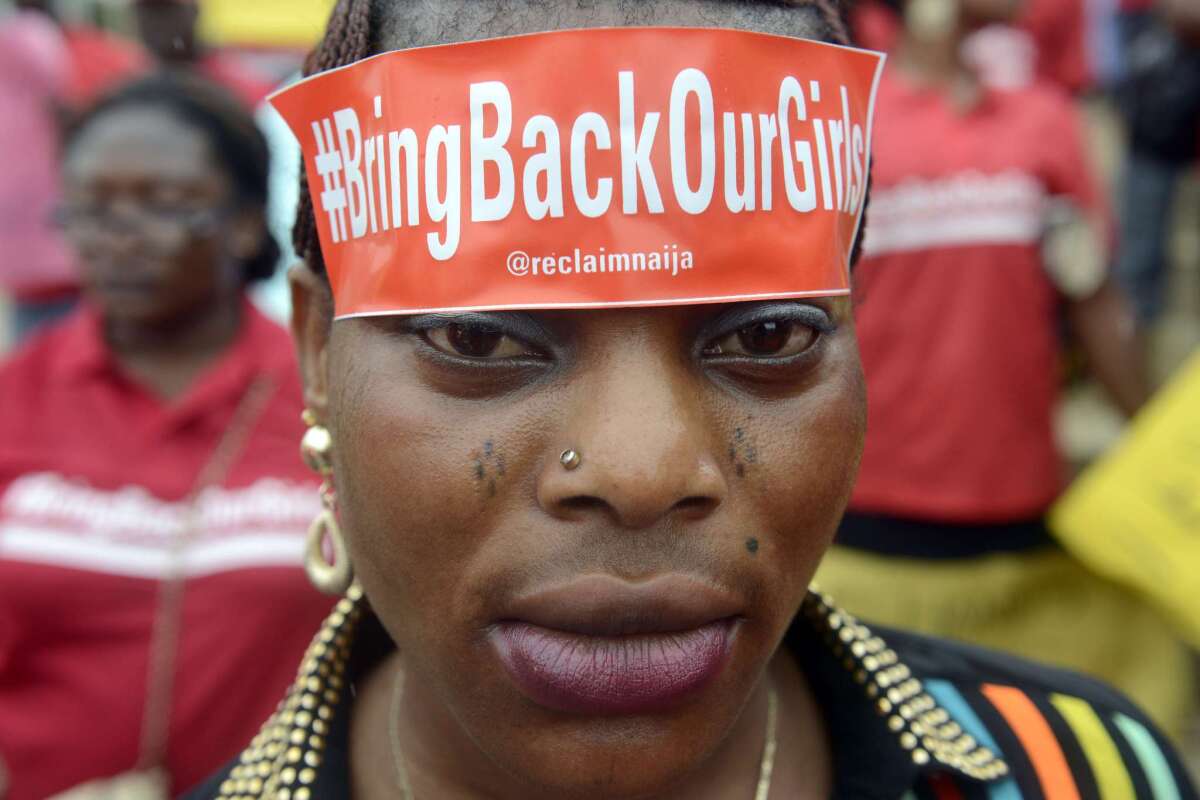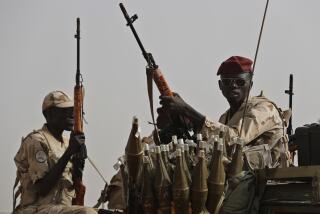20 women abducted in Nigeria; Boko Haram still holding 272 girls

- Share via
Reporting from Johannesburg, South Africa — Gunmen abducted 20 women from a remote settlement in northeastern Nigeria as 272 schoolgirls kidnapped by the terrorist group Boko Haram continued to languish in captivity, according to news reports Monday.
The latest abductions follow dozens of kidnappings, attacks on villages and slayings of schoolboys and teachers since last year.
The 20 women were from the Fulani ethnic group, traditionally cattle herders, taken from the Garkin Fulani settlement, according to a member of a local vigilante group, Alhaji Tar, the Associated Press reported.
No group claimed responsibility for the mass kidnapping, although it bore similarities to Boko Haram operations and the group was suspected.
Details of the attack are sketchy, but Tar said the gunmen drove up to the settlement at noon Thursday, ordered the women into vehicles at gunpoint and drove them off. They also took three men who tried to prevent them from taking the women.
News of the abduction took several days to emerge, because insurgents have attacked mobile phone base stations in recent years, meaning it can take days for news to filter out.
Activists in Abuja, who drew international attention to the schoolgirls’ abductions with the Twitter hashtag #BringBackOurGirls, held their 41st day of vigil Monday, nearly two months after more than 300 girls from Chibok town were loaded in trucks at night by gunmen and spirited into the forest.
Some escaped, but 272 remain in custody, according to Nigerian authorities.
The Nigerian military is facing intense criticism, with fears that dozens could be killed if it launches a military-style rescue mission. Nigerian authorities are believed to be trying to negotiate the release of the girls, although government officials have strongly denied any talks have taken place.
President Goodluck Jonathan angered many Nigerians because he made no comment about the Chibok abduction for 19 days. Politicians from the government and opposition have accused each other of supporting the insurgency.
Nigeria’s military also faces strong criticism that it was warned before the Chibok attack, but did nothing. Other villages have made similar accusations.
Boko Haram, which emerged more than a decade ago, wants to establish an Islamic state throughout Nigeria, and bitterly opposes Western education and culture. Its attacks have become increasingly violent, frequently targeting civilians instead of military and police.
In recent months, extremists have attacked schools, slaughtering students and teachers, detonated bombs in crowded markets and bus stations, and attacked towns and villages, shooting down dozens of civilians.
Boko Haram’s leader, Abubakar Shekau, last month claimed his group was abducting women and girls in revenge for the arrests of wives and children of Boko Haram fighters by Nigerian authorities.
“As long as we do not see our women and children we will never release these women and children. And we are certain, by God’s grace, no one will live happily with his wife and children so long as ours are not allowed to live with us,” he said in a video last month. “And if you think you can rescue these women and children we captured, try facing us and see what happens.”
Nigeria’s military Monday claimed to be making headway in its battle against Boko Haram, saying that it intercepted Boko Haram attackers Saturday who were on their way to attack communities in Borna and Adamawa states, killing 50 insurgents.
Last week, hundreds were reported dead in attacks by gunmen believed to be from Boko Haram on several villages in the region.
Follow @latimesdixon on Twitter
More to Read
Sign up for Essential California
The most important California stories and recommendations in your inbox every morning.
You may occasionally receive promotional content from the Los Angeles Times.












